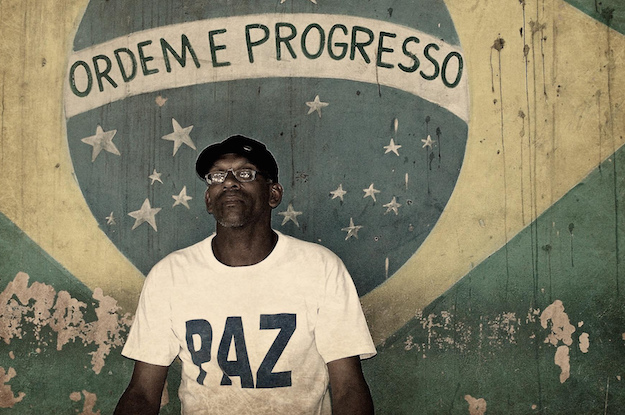The images, spread over social media, were shocking: Two men caught a teenager whom they suspected of trying to steal a bicycle. As punishment, they tattooed the phrase “I am a thief and a moron” on his forehead. The act was recorded with the tattoo artist’s cell phone camera, and went viral.
This happened in São Bernardo do Campo, in the interior of São Paulo, on June 9, but it could be anywhere, at any time. Brazil suffers from violence, but also from fear of this violence and anger at the impunity that often follows. Every nine minutes someone dies violently. One out of every three Brazilians has a relative or friend who has been murdered – and three out of every four Brazilians is afraid of being killed. Few who commit these crimes are punished.
Perhaps it is not surprising that the culture of taking justice into your own hands is widespread, and widely supported on social media and everyday comments by much of society. More than half of Brazilians agree with the saying “a good criminal is a dead criminal.” The comment sections of news articles following the event showed how many readers agreed with that kind of thinking.
Vigilante justice is endemic in Brazil, where an average of one person is lynched per day, according to the sociologist José de Souza Martins. Violence is seen as a legitimate answer to crime. People who are afraid, angry, or who feel victimized look for enemies that can be eliminated, instead of searching for ways to fix a broken criminal justice system and a failed public security model. But torture is not justice, and should not be accepted in its place. It is up to all of us – especially those of us in the media, who can tell these stories, humanize the victims, and give readers another perspective – to work to change this.
In the case of the 17-year-old in São Bernardo do Campo, the men responsible – the tattoo artist Maycon Carvalho and the construction worker Ronildo de Araujo – were arrested after they shared the images of the attack. According to the police bulletin, the men justified their actions by saying they believed the teenager had tried to steal a bike. Later, Carvalho’s mother said her son regretted what he did, and may have been motivated by violence she had suffered. She was recently express-kidnapped in front of the family and held for four hours. She has also suffered an assault and had her car stolen at a stoplight. The family’s house has been broken into and robbed. None of these cases was solved by the police.
Many of the victims of vigilante attacks were accused of petty crimes – accusations that may or may not have any basis in fact. This teenager told the police he was drunk, and knocked over the bike; he didn’t try to steal it. He did, in the video, seem intoxicated. His family, who identified him from the horrific images, went to the police station to find him. They had been looking for him since May 31, when he had disappeared from home. They said he may not have been in full control of his mental faculties.
Whether or not he tried to steal anything, it doesn’t matter. The young man now has that mark on his forehead. It is already hard enough, with the country in a recession and few opportunities for work and study, to be young and poor and to build a future. This will make it that much harder. But many cases are even worse: In the state of Paraná, a truck driver named Juvenal Paulino de Souza was beaten to death on suspicion he molested a child. He was later found innocent. In the state of Maranhão, Cleidenilson da Silva was lynched after allegedly trying to rob a bar.
There is no justice in these actions. They only lead to more violence. Local media can be complicit in these kinds of unfounded accusations, or it can help fight them. We are all part of this culture. We can change it.
—
Silva is the founder and editor-in-chief of Voz das Comunidades, an online news and cultural resource for residents of Rio de Janeiro’s favelas. Silva founded the service as an 11-year-old living in Rio’s Complexo do Alemão. In 2015, at 21, he was named by Forbes as one of Brazil’s most promising young people under 30.








